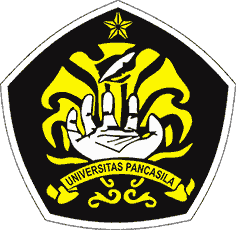FOOD TOURISM AND SUSTAINABLE DEVELOPMENT MODEL: CASE STUDY OF PASAR PAPRINGAN
DOI:
https://doi.org/10.35814/tourism.v9i1.1834Keywords:
Pasar Papringan, Culinary Tourism, Sustainable Tourism, Traditional FoodAbstract
Food or culinary tourism is an activity that cannot be missed during destination visit and Pasar Papringan in Temanggung, Central Java is an interesting case to study. This study then aims to see the contribution of Pasar Papringan as a culinary tourism destination as a model for sustainable tourism development. The research data was collected through in-depth interviews, observation, and literature review. Interviews were conducted with parties who are directly involved in the development of Pasar Papringan, such as initiators, volunteers, culinary curators, and local residents. Meanwhile, observations were conducted by looking at market implementation practices during the event. The literature study was carried out by researchers referring to references about food tourism, sustainable tourism development, and local empowerment. The re-emergence of traditional local foods shows the efforts to preserve the heritage of the ancestors in the form of food, so that it can still be enjoyed by today's generations. In addition, the active involvement of the local community living around the Pasar Papringan location shows the steps for the welfare of local residents. They get additional income from the activities at Pasar Papringan. Thus, it can be said that local people are economically and even socially empowered. Even further, the eco-friendly or green concept promoted by Pasar Papringan makes it clear that the market cares about environmental sustainability issues, which of course also becomes a point in the development of sustainable tourism. One other point that is no less important is the support and intervention of several communities, such as Spedagi movement and the Komunitas Mata Air, which are able to make Pasar Papringan a leading tourist destination with a unique and distinctive appeal.
References
Bertella, G. (2011). Knowledge in food tourism: The case of Lofoten and Maremma Toscana. Current Issues in Tourism, 14(4), 355–371. https://doi.org/10.1080/13683500.2010.489638
Buck, D., Getz, C., & Guthman, J. (1997). From farm to table: the organic vegetable commodity chain of northern California. Sociologia Ruralis, 37(1), 3–20. https://doi.org/10.1111/1467-9523.00033
Cohen, E., & Avieli, N. (2004). Food in tourism - Attraction and impediment. Annals of Tourism Research, 31(4), 755–778. https://doi.org/10.1016/j.annals.2004.02.003
Correia, A., Moital, M., Da Costa, C. F., & Peres, R. (2008). The determinants of gastronomic tourists’ satisfaction: a second-order factor analysis. Journal of Foodservice, 19(3), 164–176. https://doi.org/10.1111/j.1745-4506.2008.00097.x
Curtis, K., Slocum, S., Teegerstrom, T., Bishop, C., & Landis, M. (2017). Innovative Food Tourism Development Strategies for Sustainability on American Indian Reservations. Journal of Food Distribution Research, 48(1), 46–53.
Ellis, A., Park, E., Kim, S., & Yeoman, I. (2018). What is food tourism? Tourism Management, 68(March), 250–263. https://doi.org/10.1016/j.tourman.2018.03.025
Everett, S., & Slocum, S. L. (2013). Food and tourism: An effective partnership? A UK-based review. Journal of Sustainable Tourism, 21(6), 789–809. https://doi.org/10.1080/09669582.2012.741601
Font, X., & Serra, J. (2017). Bases for the implementation of tourism marketing for a sustainable destination: the case of Barcelona. Tourism 2020 Strategic Plan 2017. 1–27.
Hall, C. M., & Sharples, L. (2003). The consumption of experiences or the experience of consumption? An introduction to the tourism of taste. In C. Michael Hall, Liz Sharples, R. M., & Cambourne, N. M. and B. (2003). Food Tourism Around the World: Development, management and markets. Tourism Review International. https://doi.org/10.1016/B978-0-7506-5503-3.50005-1, 1-24. New York: Routledge.
Hegarty, J. A., & O'Mahony, B. (1999). Gastronomy: A phenomenon of cultural expressionism and an aesthetic for living. Journal of Hospitality and Tourism Education, 11(4), 25–29. https://doi.org/10.1016/S0278-4319(00)00028-1
Horng, J. & Tsai, C. (2010). Government websites for promoting East Asian culinary tourism: A cross-national analysis. Tourism Management 31(1):74-85. doi: 10.1016/j.tourman.2009.01.009
King, P. 2006. Growing Sustainably: Seeding Sustainably. Foodservice Director 19 (8), 20.
Kivela, J., & Crotts, J. C. (2006). Tourism and Gastronomy: Gastronomy’s Influence on How Tourists Experience a Destination. Journal of Hospitality and Tourism Research, 30(3), 354–377. doi:10.1177/1096348006286797
Morelli, John (2011) "Environmental Sustainability: A Definition for Environmental Professionals," Journal of Environmental Sustainability: Vol. 1: Iss. 1, Article 2. DOI: 10.14448/jes.01.0002. http://scholarworks.rit.edu/jes/vol1/iss1/2
Niedziolka, I. (2012). Sustainable Tourism Development. Regional Formation and Development Studies, 3 (8), 157–166. http://journals.ku.lt/index.php/RFDS/article/view/576/pdf
Okech, R. N. (2014). Developing Culinary Tourism : The Role of Food as a Cultural Heritage in Kenya. Proceedings of the Second International Conference on Global Business, Economics, Finance and Social Sciences, July, 1–16.
http://globalbizresearch.org/chennai_conference/pdf/pdf/ID_CF412_Formatted.pdf
Quan, S., & Wang, N. (2004). Towards a structural model of the tourist experience: An illustration from food experiences in tourism. Tourism Management, 25(3), 297–305.
Richard, G. (2012). “An overview of food and tourism trends and policies” in OECD, Food and the Tourism Experience: The OECD-Korea Workshop, OECD Studies on Tourism, OECD Publishing. http://dx.doi.org/10.1787/9789264171923-en. Pp. 13-46.
Robinson, J. (2004). Squaring the circle? Some thoughts on the idea of sustainable development. Ecological Economics, 48(4), 369–384. https://doi.org/10.1016/j.ecolecon.2003.10.017
Sanchez-Canizares, S. M., & Lopez-Guzman, T. (2012). Gastronomy as a tourism resource: Profile of the culinary tourist. Current Issues in Tourism, 15(3), 229–245.
Sharma, S. (2014). Sustainable Culinary Practices. In Vinnie, J (ed). (2014). Managing Sustainability in The Hospitality and Tourism Industry: Paradigms and Directions for the Future. Pp 303-334. Toronto: Apple Academic Press.
Sirakaya-Turk, E., Baloglu, S., & Mercado, H. U. (2014). The Efficacy of Sustainability Values in Predicting Travelers’ Choices for Sustainable Hospitality Businesses. Cornell Hospitality Quarterly, 55(1), 115–126. https://doi.org/10.1177/1938965513499822
Soini, K., & Dessein, J. (2016). Culture-sustainability relation: Towards a conceptual framework. Sustainability (Switzerland), 8(2), 13–15. https://doi.org/10.3390/su8020167
Tikkanen, I. (2007). Maslow's Hierarchy and Food Tourism İn Finland: Five Cases. British Food Journal, 109: (9), 721-734.
Timothy, D. J. (2016). Introduction Heritage cuisines, foodways and culinary traditions. In Timothy, D. J. Heritage Cuisines: Traditions, Identities and Tourism. https://doi.org/10.4324/9781315752525. Pp 1–24. New York: Routledge.
UNEP & UNWTO. (2005). Making Tourism More Sustainable - A Guide for Policy Makers. Making Tourism More Sustainable - A Guide for Policy Makers. https://doi.org/10.18111/9789284408214
Visser, W., & Brundtland, G. H. (2013). Our Common Future (‘The Brundtland Report’): World Commission on Environment and Development. The Top 50 Sustainability Books, 52–55. doi:10.9774/gleaf.978-1-907643-44-6_12
World Headquarters. Global Sustainability Principles. 2007. Web. 30 Oct. 2010. <http://www.ecolab.com/CompanyProfile/GlobalSustainabilityPrinciples/Ecolab_GSP_sm.pdf >























